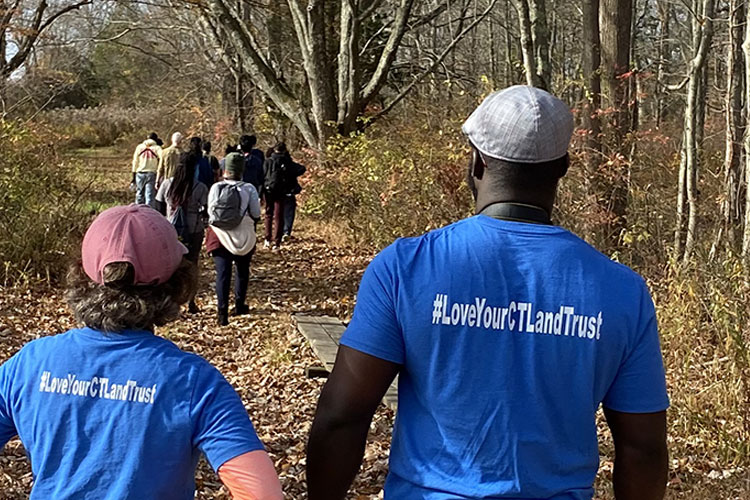How to Apply – CCPP
CCPP enables land trusts that have submitted or intend to submit an OSWA grant application to CT DEEP to apply through CLCC for federal match funds for their project. CCPP funds the purchase of a federal easement. The land trust may either work with another land trust (“entity-held easement”) to hold the federal easement or the federal government (“U.S. - held easement”).
Please contact Yaw, CCPP’s Administrator at yodarko@ctconservation.org to set up a meeting before beginning the intake form for either an Entity-Held or U.S.-Held Easement.
Easement Types
Intake forms for Entity-Held and U.S.-Held Easements are due on Friday, October 6, 2023.
Entity-Held Easements
Entity-Held Easements are easements acquired and held by an eligible entity (see definition to the right).
These are easements implemented through an agreement between NRCS and an eligible entity.
Please read the RCPP Entity-Held Easement Program Agreement before completing the intake form. The RCPP Entity-Held Easement Program Agreement stipulates the terms and conditions under which the Eligible Entity may be permitted to use RCPP cost-share assistance for the purchase of RCPP Easements.
Eligible Entities to hold federal easements can be land trusts or other qualified conservation organizations, NGOs, Indian Tribes, and Local and State Governments meeting the following criteria:
- Demonstrate a commitment to long-term conservation
- Have the authority and capability to acquire, manage, and enforce easements
- Have the staff capacity (directly or through a formal agreement with other entities) to monitor and steward the easement
- Be able to satisfy the non-federal share match (e.g., OSWA or private funding) requirement for the easement
Entity-Held Easement Template
Landowners are paid a percentage of the value of an Entity-Held Easement depending on the easement's level of restriction (i.e., the activities allowed and prohibited on the land the easement is placed on). Program participants may choose between a highly restrictive or a moderately restrictive easement.
To the right, you'll find sample easement templates for a highly restrictive and a moderately restrictive Entity-Held Easement. There are two versions of these templates. One with a U.S. Right of Enforcement (ROE), and one without.
In addition to these documents is a summary of the principal characteristics between the two levels of restriction.
Forms
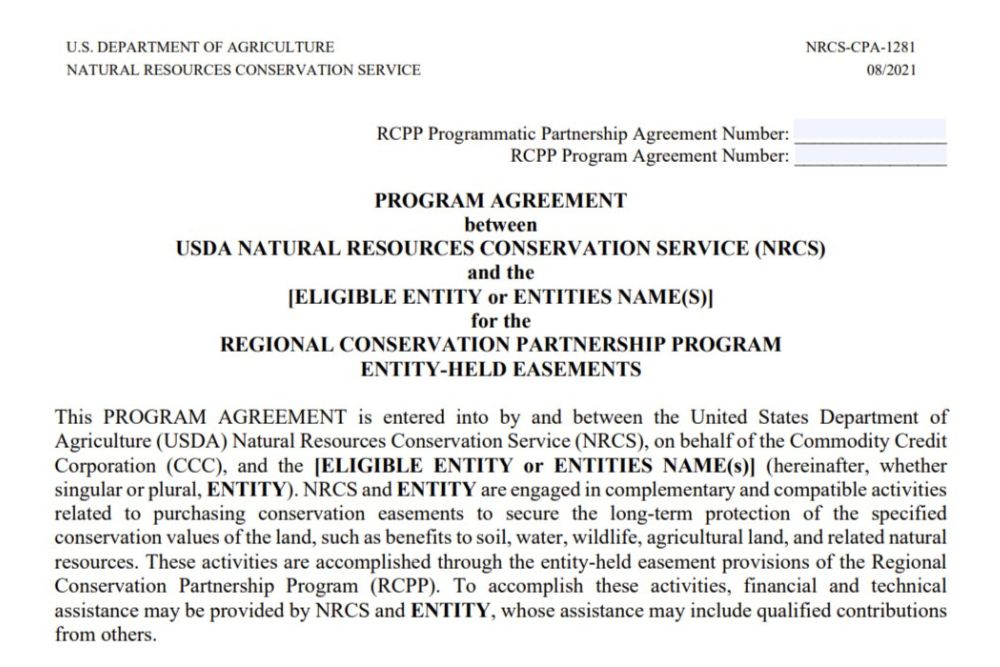
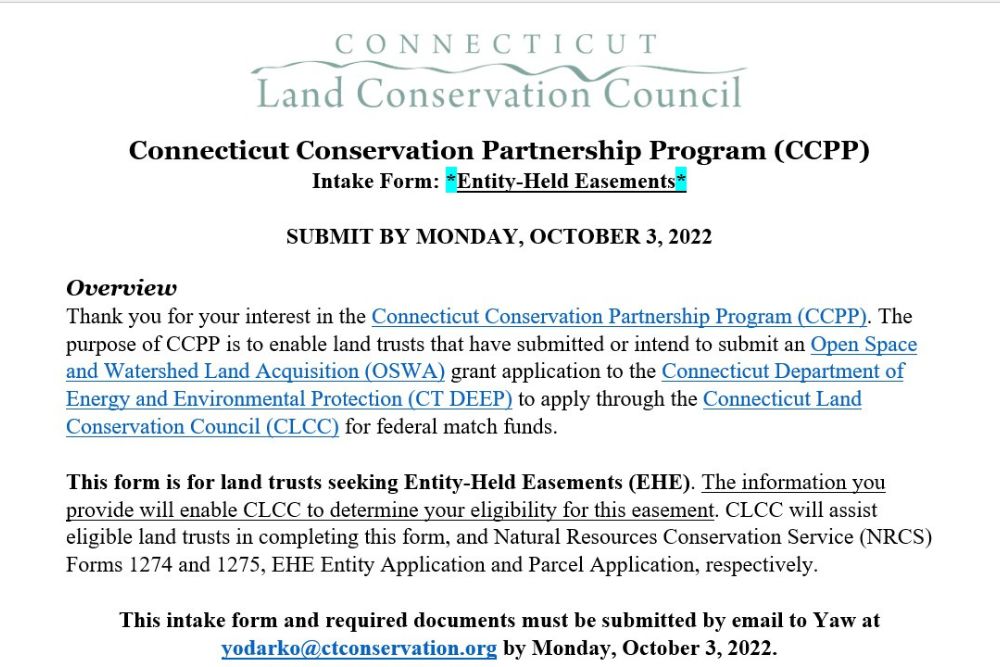
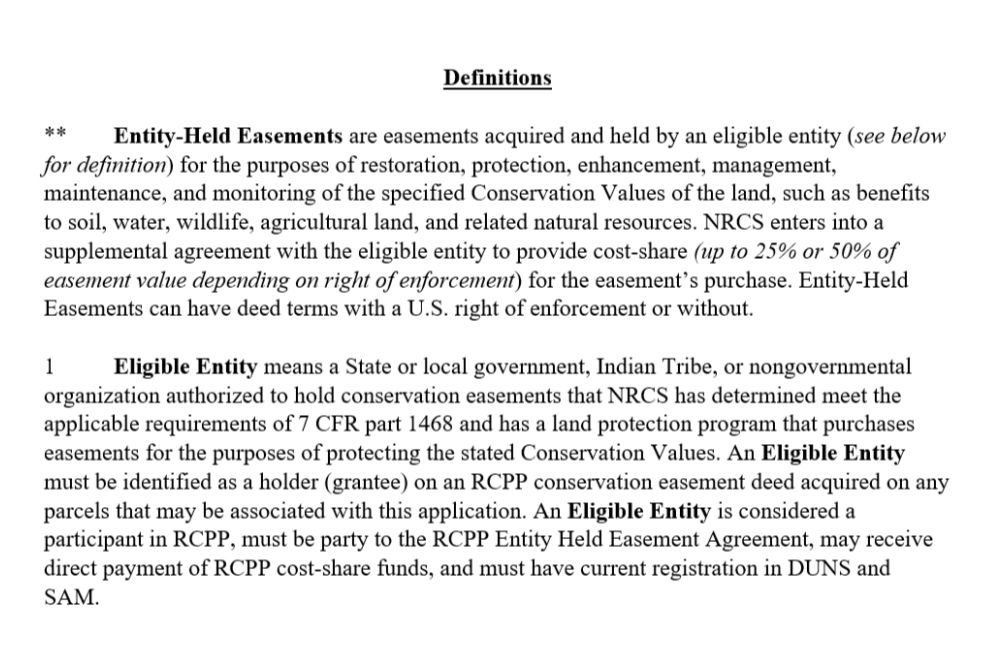
Eligibility Information
- Entity must have a Dun and Bradstreet Number (DUNS)
- Entity must be registered in the System for Award Management (SAM)
- Entity must have a Tax/Employer Identification Number
- Landowners working with Eligible Entity will need records established with the USDA’s Farm Service Agency (FSA). Records to be established may include:
- Highly Erodible Land Conservation (HELC) & Wetland Conservation (WC) Certification
- Average Adjusted Gross Income (AGI) Certification and Consent to Disclosure of Tax Information
- Farm Operating Plan/Member Information (Legal Entity Landowners)
U.S. Held Easements
U.S.-Held Easements are easements acquired and held by the USDA-Natural Resources Conservation Service on behalf of the United States.
These easements are implemented through an agreement between NRCS and landowner(s).
U.S.-Held Easement Template
Landowners are paid a percentage of the value of a U.S.-Held Easement depending on the easement's level of restriction (i.e., the activities allowed and prohibited on the land the easement is placed on). Program participants may choose between a highly restrictive or a moderately restrictive easement.
To the right, you'll find sample easement templates for a highly restrictive and a moderately restrictive U.S.-Held Easement. The moderately restrictive template is accompanied by Exhibit E. Exhibit E lays out Authorized Conservation Activities and other items that are specific to this level of restriction.
In addition to these documents is a summary of the principal characteristics between the two levels of restriction.
Forms
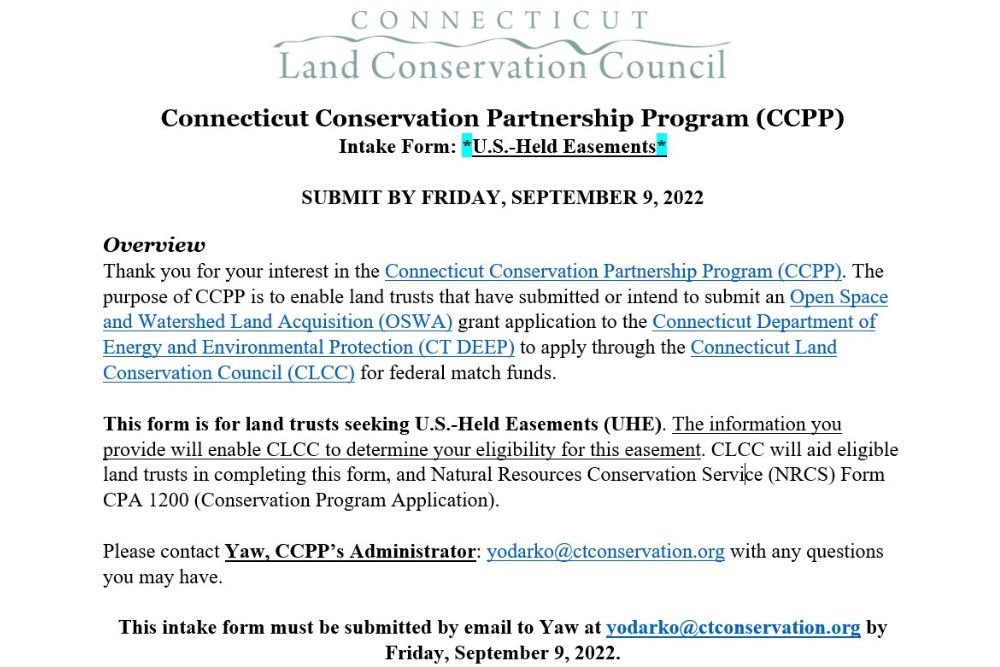
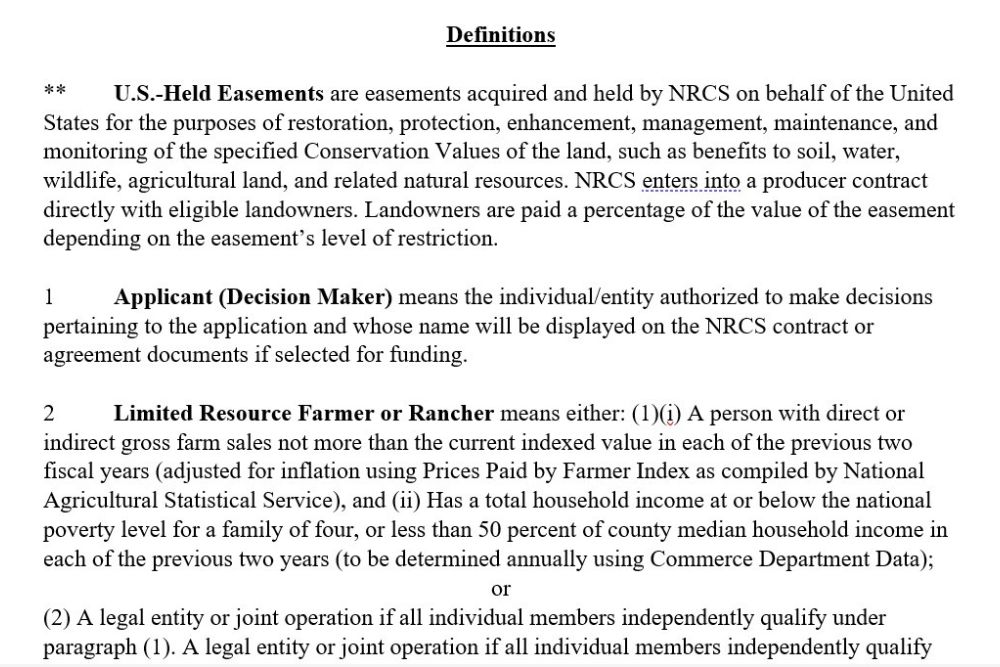
Eligibility Information
- Landowners will need records established with the USDA’s Farm Service Agency (FSA). Records to be established may include:
- Highly Erodible Land Conservation (HELC) & Wetland Conservation (WC) Certification
- Average Adjusted Gross Income (AGI) Certification and Consent to Disclosure of Tax Information
- Farm Operating Plan/Member Information (Legal Entity Landowners)
